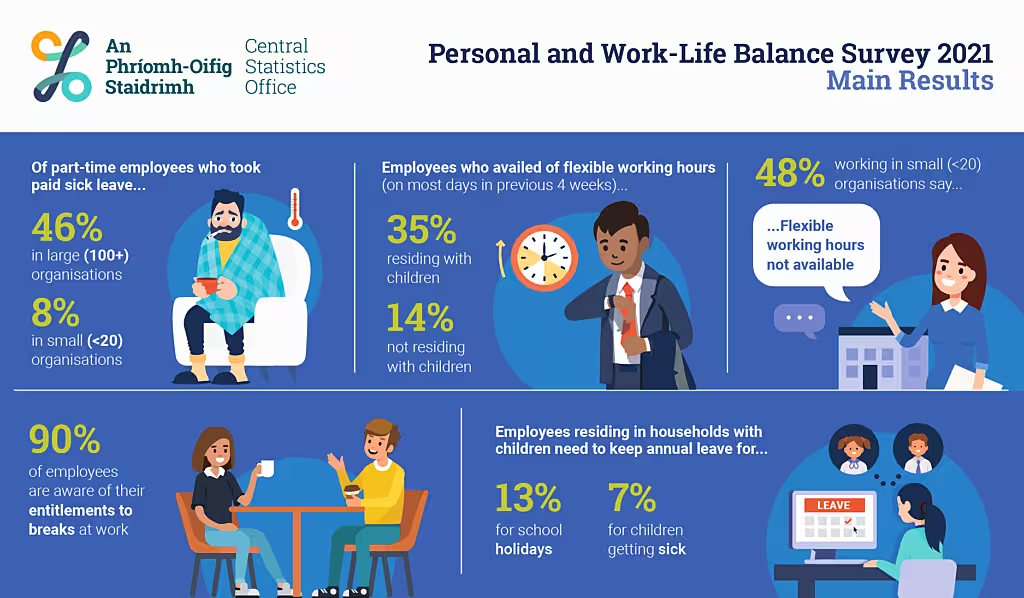Muireann Duffy
Over one in five workers (22.4 per cent) had not taken annual leave in the 12-month period prior to being interviewed by the Central Statistics Office (CSO), new figures show.
Full-time employees in larger organisations with 100 or more staff were found to be more likely to take their leave, with 92.4 per cent using their days off as opposed to 88.4 per cent of part-time workers in a similar sized business.
The research on work-life balance revealed an employee's length of service with their current employer can impact their likelihood of taking annual leave, with over 88 per cent of full-time workers who have been in their current job for 19 years or more taking time off.
Part-time workers with a shorter length of service were found to be more likely to take unpaid sick leave (11.8 per cent), compared to 5 per cent of their full-time counter-parts.

In the last two years, 7 per cent of employees said their request for time-off had been denied by their employer, with annual leave being the most denied form.
Of those who faced barriers to taking leave, 63.8 per cent said the reason given was a lack of staff to cover work. Just over 12 per cent of worker who have children who were denied requests said they kept their annual leave for school holidays, while 7.3 per cent said they kept their days off in case their child got sick.
Just 16.7 per cent of those surveyed said they had availed of flexible hours in the preceding year, while almost half (48 per cent) of workers in a small organisation (less than 20 employees) said flexible working arrangements were not available to them.
Positively, over 90 per cent of workers said they were aware of their break-entitlements at work. However, just 76.2 per cent knew employees are entitled to 11 consecutive hours of rest in each 24-hour period, and only 67.7 per cent were aware of the entitlement for breastfeeding/lactation breaks.














